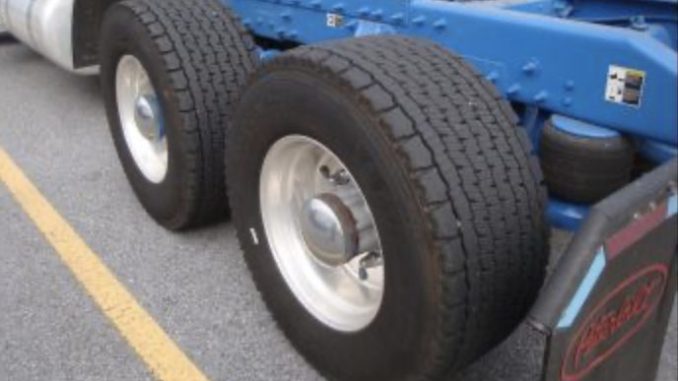
The Truck Industry Council (TIC) and the NHVR have released the findings of their latest research project, which investigated the impacts of the next evolution in tyre development with wide, ‘Super Singles’ Super Single tyres.
The truck industry body and the national truck regulator said in their joint statement that wide single and ultrawide single tyres have been available for decades internationally, however until now, there has never been a substantial study focussing on Australian road construction, in particular sprayed seal unbound granular pavements.
They say that this knowledge has always been a barrier to the adoption of next generation wider tyres in Australia.
To address the knowledge gap, a large-scale testing program using the National Transport Research Organisation’s (NTRO) Accelerated Loading Facility was conducted. Nine identically designed pavements were constructed, with each loaded repeatedly to determine the relative rate of pavement wear for each tyre. The results showed the pavement deformation rates for both the dual tyres and single tyres were within a similar range, and the 255/70R22.5 dual tyres caused the highest deformation rate.
The comparative pavement wear of super single tyres was not as sensitive to modest variations in inflation pressure, when compared to duals.
“Taking a real-world perspective on the comparatively small differences in pavement wear found, the pavement damage exhibited by the commonly used 11R22.5 dual tyre configuration was notably influenced by inflation pressure, with the highest damage observed when these tyres were over-inflated – a common occurrence in practice,” TIC technical officer Paul Caus explained,
“In addition to the finding, day-to-day use of single tyres make it easier for drivers to check tyre conditions, monitor inflation pressures, and inspect brake components reducing the risk of overheating brakes and wheel end fires,” Caus said.
“It can be expected that in real world conditions, the wider adoption of wide tyres would not cause a discernible increase in road pavement wear.
“TIC’s view is that there is no justification in limiting axle masses when using appropriate wide single tyres given the improved vehicle stability and efficiency they bring. They should be permitted to operate at the same mass as equivalent dual tyred axles.”
NHVR’s chief safety and productivity officer David Hourigan welcomed the report’s findings.
“The findings of this report will be of great importance to equip road managers and the NHVR with the knowledge needed during consideration of vehicle load limits and the benefits provided by super single tyres,” Hourigan said.
The project was funded by the NHVR’s Heavy Vehicle Safety Initiative, supported by the Australian Government, and was led by TIC, representing truck manufacturers and importers in Australia.
TIC acknowledged its project partners the NTRO (formerly ARRB), and tyre suppliers Goodyear and Michelin for their expertise and efforts to deliver this important research.



